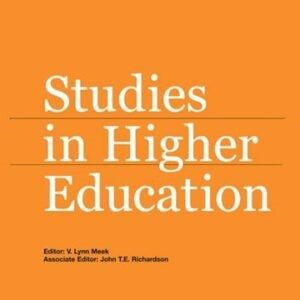A new study was published on December 7, 2023 in “Studies on Higher Education”, a leading international journal, in Gold Access: “The Young and the Old, the Fast and the Slow: A Large-Scale Study of Productivity Classes and Rank Advancement“ by Marek Kwiek and Wojciech Roszka.
The paper in PDF (Gold Access) is here.
Marek Kwiek & Wojciech Roszka (2023) The young and the old, the fast and the slow: a large-scale study of productivity classes and rank advancement, Studies in Higher Education, DOI: 10.1080/03075079.2023.2288172
https://www.tandfonline.com/doi/full/10.1080/03075079.2023.2288172
Abstract:
We examined a large sample of Polish science, technology, engineering, mathematics, and medicine (STEMM) scientists (N = 16,083) to study rank advancement and productivity in the past 40 years. We used two previously neglected time dimensions – promotion age and promotion speed – to construct individual lifetime biographical and publication profiles. We followed a classificatory approach and the new methodological approach of journal prestige–normalized productivity. All scientists were allocated to different productivity, promotion age, and promotion speed classes (top 20%, middle 60%, and bottom 20%). The patterns found were consistent across all disciplines: scientists in young promotion age classes (and fast promotion speed classes) in the past were currently the most productive. In contrast, scientists in old promotion age classes (and slow promotion speed classes) in the past were currently the least productive. In the three largest disciplines, the young-old promotion age productivity differential for associate professors was 100–200% (150–200% for full professors), and the fast-slow promotion speed productivity differential for associate professors was 80–150% (100–170% for full professors). Our results were partly supported by a regression analysis in which we examined odds ratio estimates of belonging to top productivity classes. To examine the sample, we combined biographical and demographic data collected from the national register of all Polish scientists and publication metadata on all Polish articles indexed in Scopus (N = 935,167).


Bio
Professor Marek Kwiek is Director of the Institute for Advanced Studies and UNESCO Chair in Institutional Research and Higher Education Policy, University of Poznan, Poland (https://ias.amu.edu.pl/director/). His research area is quantitative studies of science, with interests in globalization, academic profession, and international research collaboration. He has published 230 papers and several books. His recent monograph is Changing European Academics: A Comparative Study of Social Stratification, Work Patterns and Research Productivity (Routledge, 2019). His recent invited seminars include Berkeley, Harvard, Stanford, Oxford, Beijing, Hiroshima, and Hong Kong. He spent three years at North American universities, including the University of Virginia and UC Berkeley. He was also a Fulbright New Century Scholar (2007-2008) and a Professorial Visiting Fellow at the UCL London (2012-2013). Currently, he is a Visiting Researcher at the German Center for Higher Education Research and Science Studies (DZHW, 2022-2024), Berlin. A Principal Investigator or country Team Leader in 25 international research projects. An associate editor of Higher Education. An editorial board member of Higher Education Quarterly and British Educational Research Journal. A Fellow of the European Academy of Sciences and Arts (EASA) in Salzburg and Academia Europaea in London. Elsevier and University of Stanford data name him among the top 2% of most highly cited scientists in the world. Contact: marek.kwiek@amu.edu.pl , Twitter: @Marek_Kwiek.

